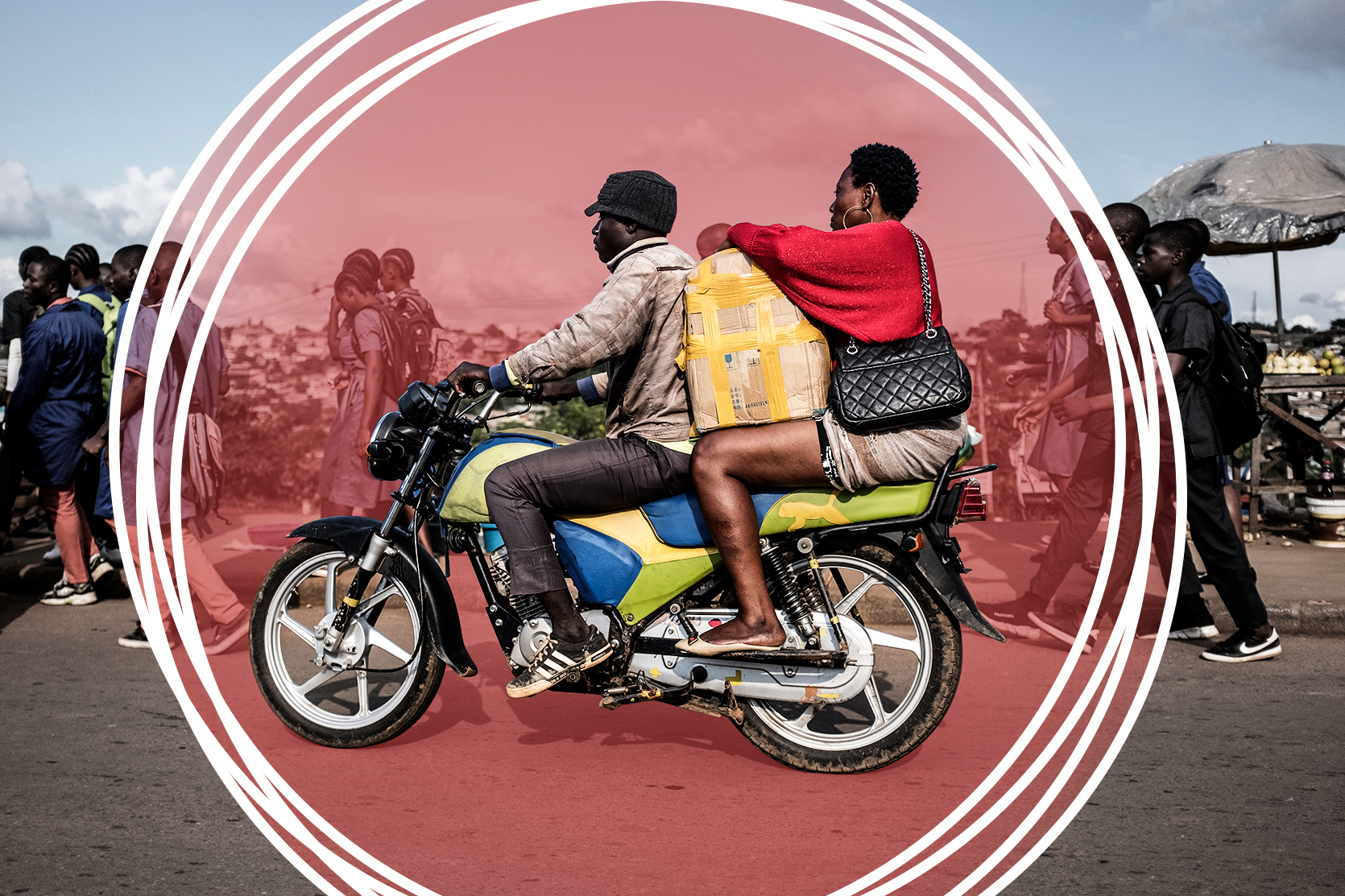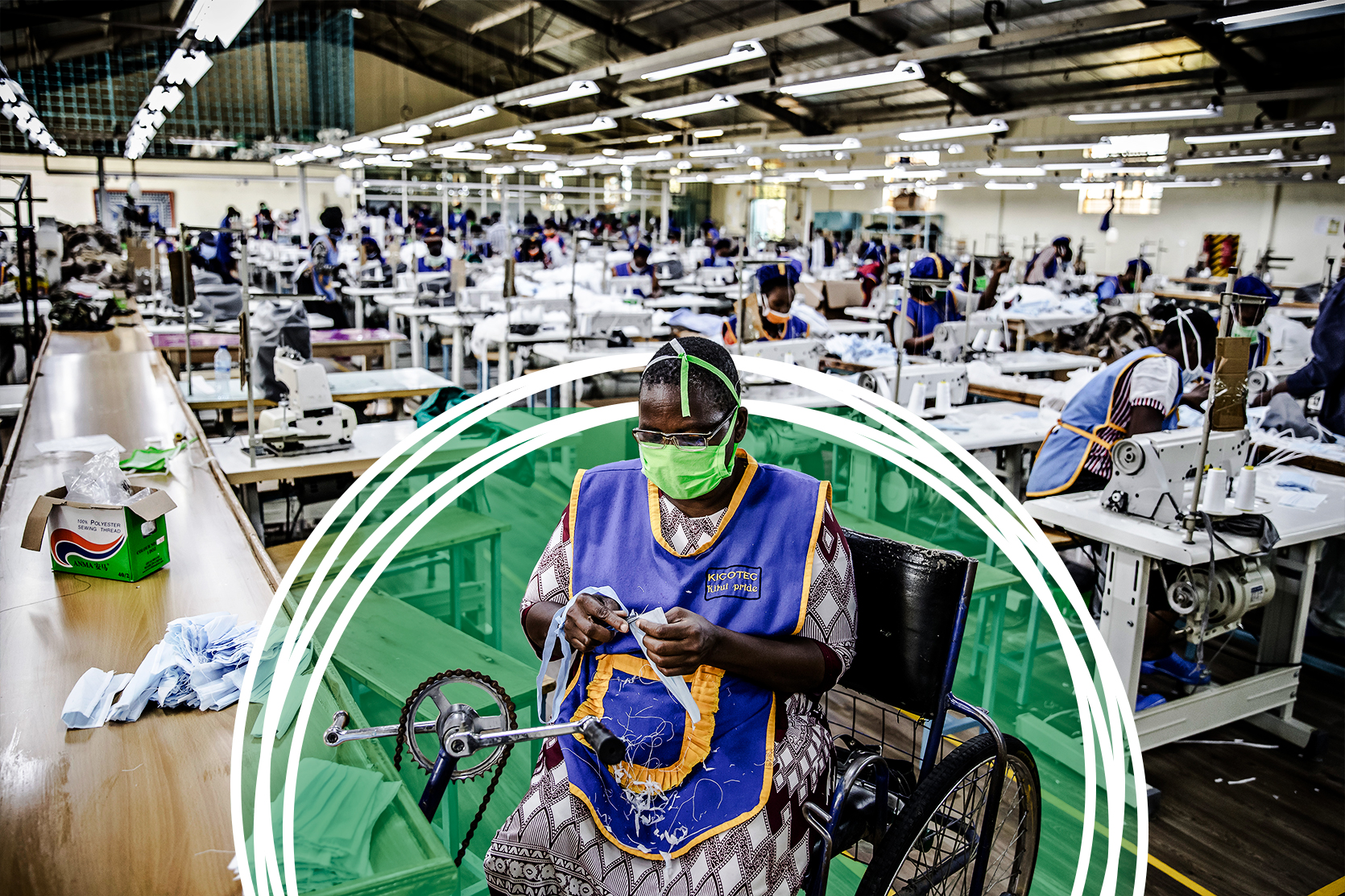
When Cameroon closed universities, primary and high schools on 17 March as part of preventive measures to stop the spread of the coronavirus, Tongwa Francis was left without a job. The energetic young man had been making a living by offering part-time teaching services at private high schools in the capital Yaounde. But then, the coronavirus emerged, causing Tongwa’s source of income to vanish.
Like Tongwa, many private school teachers, who are paid per hour, anxiously looked forward to the reopening of schools. But on 1 June, when schools were set to reopen, only final-year students and their teachers were allowed to return to their classrooms. Thousands of private teachers across the country remain in limbo, unsure of when they will ever recover their livelihoods, following the government’s decision not to reopen the schools completely.
But then, the coronavirus emerged, causing Tongwa’s source of income to vanish.
In Cameroon, private schools, as well as some government schools, contract teachers on a part-time, freelance basis. The teachers are assigned to teach students on their subjects of expertise for a number of hours per week, usually an average of two hours a week per subject. The average rate for an hour is $2.50, and a part-time teacher who is lucky to be allocated many sessions can make about $120 a month. This amount can support a modest life in a rural setting. But in an urban setting, it is living on a shoestring.
The average rate for an hour is $2.50, and a part-time teacher who is lucky to be allocated many sessions can make about $120 a month.
As Tongwa could no longer teach, he got hold of a motorcycle, which he has been using for commercial motorcycling. It is thanks to this new activity that Tongwa can put food on the table for himself and a younger sibling. Some of Tongwa’s colleagues who have been unable to find an alternative source of income in the city have retreated to their villages.
Jobs were scarce enough in the country even before the outbreak of the pandemic. Cameroon, as of 2014, has an unemployment rate of 3.53%. Market analysts say the country’s labour market is unable to accommodate the thousands of graduates who are produced yearly by tertiary institutions of learning. The government is always overwhelmed with applications whenever it launches a recruitment drive.
As Tongwa could no longer teach, he got hold of a motorcycle, which he has been using for commercial motorcycling. It is thanks to this new activity that Tongwa can put food on the table for himself and a younger sibling.
In one instance in 2015, when the government launched an exercise to recruit 4,700 officers into the national security corps, it received applications from over 130,000 candidates. Most young people who can’t secure formal jobs turn to the informal sector where they engage in petty trading, including operating telephone booths, car washes, house-help services and subsistence farming, among others.
According to a May 2020 study by the country’s National Institute of Statistics (NIS), the education, hotel accommodation and catering, forestry and construction sectors have been the hardest hit, with job losses of over 50%. The study, which was carried out mainly in Douala, Cameroon’s economic hub, and the capital Yaounde, showed that the loss of employment was very significant in small- and medium-sized enterprises, especially those in the modern sector. Only 16% of enterprises surveyed, mostly large companies, had embraced remote working.
Most young people who can’t secure formal jobs turn to the informal sector where they engage in petty trading, including operating telephone booths, car washes, house-help services and subsistence farming, among others.
Now the coronavirus is putting strain on other formal sectors of the economy. Just recently, the national carrier, Camair-Co furloughed 371 of its workers for a period of three months, with the possibility of an extension, as the airline’s fleet remains grounded due to the coronavirus and financial constraints.
As the government-imposed restrictions have significantly disrupted economic activities, business enterprises have been forced to lay off staff – both temporary and permanent workers. The NIS survey also shows that most companies have had to slash working hours, cut salaries, cancel supplier orders and put off planned investments.
Most African economies, like that of Cameroon, remain informal and vulnerable to external shocks, according to a report by the African Union. The UN Economic Commission for Africa estimates that the continent’s average GDP growth this year will contract by 1.4% – from 3.2% to 1.8%. In a worse-case scenario, Africa’s economic growth could fall by up to 2.6%. This will be as a result of the decline in demand for African products, since manufacturing across the world is on hold.
Most African economies, like that of Cameroon, remain informal and vulnerable to external shocks, according to a report by the African Union.
Like other countries, then, Cameroon is in a fix as to how to balance the equation between lives versus livelihoods. Following pressure from economic operators, the government, by the end of April, had eased some of the restrictions enforced earlier. Catering, bars and leisure facilities are allowed to operate beyond the 6PM limit and buses and taxis can now carry passengers to their full capacity.
The Cameroonian fiscus is set to lose “about XAF 768 billion (about $1.3 billion) in revenues due to the coronavirus pandemic, according to the Ministry of Finance. However, “exceptional support from development partners” and “traditional financial support” from the IMF would reduce the shortfall to XAF 542 billion (about $930 million), the ministry said in an explanatory note on 3 June this year. The ministry projected a decline in GDP growth from 4% to -1.1%, and recession for this year. Allocations to government administrations would be reduced by 20%. Clearly, all of this will be a big loss for a lower-middle-income economy that aims to become an upper-middle-income economy by 2035.
The Cameroonian fiscus is set to lose “about XAF 768 billion (about $1.3 billion) in revenues due to the coronavirus pandemic, according to the Ministry of Finance.
As people continue to lose their jobs in Cameroon, it is pushing them and their households into poverty. In April, Cameroon announced a set of fiscal measures, including tax relief and a moratorium on the payment of certain levies by businesses, to cushion the socio-economic impact of the pandemic. But many, including the country’s main employers’ union, have criticised the measures as being largely inadequate.
The government seems to have forgotten the most vulnerable people, the rural poor and those who hustle in the informal sector. About 90% of workers in Cameroon are trapped in the informal sector (a similar figure to the situation in Zimbabwe). The 9.2 million people who work in the informal economy accounted for 50% of Cameroon’s GDP in 2015. Most people in the informal sector survive on agriculture and crafts.
The government seems to have forgotten the most vulnerable people, the rural poor and those who hustle in the informal sector. About 90% of workers in Cameroon are trapped in the informal sector.
Problems with economic governance and low productivity have been identified as the key factors supporting the overdevelopment of the country’s informal sector. To change the tide and transform the economy to a formal one will require quality, sustained education, as well as freedom of information. That is why school teachers like Tongwa are important.
Unlike South Africa, which has managed to offer Social Relief of Distress grants to unemployed individuals who do not receive any other form of social grant, Cameroon has yet to extend such relief to its most vulnerable. Instead, it has asked its 26.5 million people, including those who have lost their jobs, to contribute to a government-initiated solidarity fund to help fight the virus.
We’d love to hear from you! Join The Wicked Conversation by leaving your comments below, or send your letter to the editor to richard@gga.org.
Amindeh Blaise Atabong is a Cameroonian freelance journalist. His interests include gender, human rights, climate change, environment, tech, conflict, peace-building and global development. In 2019, he was a finalist in the inaugural True Story Award, and also won a prestigious Kurt Schork Award in International Journalism. His works have been published by independent regional and international outlets, including Quartz, Mail & Guardian, Reuters, Jeune Afrique, Epoch Times, African Arguments and Equal Times.







